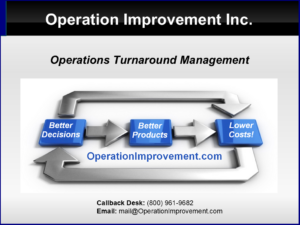Criticism, Responsibility and Blame
I remember two things about my second-grade school year. In those days before classroom computing, my homeroom was just across from the school library. I also remember something else – something less pleasant.
I was falsely accused! It was a serious offense for a second grader. The teacher said that I had littered. Horrors! She claimed that I had intentionally thrown down paper instead of… I don’t know what. I don’t remember the rest, except perhaps that I had lost some crumpled paper from my tiny back pocket.
I was caught off-guard by what was a stinging accusation for a seven-year-old child, and it is something that I will never forget.
My wife still remembers a third-grade teacher who impatiently gave her a slap on the bottom for pausing to make sure her first-grade sister was safely aboard a school bus.
I laugh at myself for still remembering my ancient slight. I reflect and realize how lucky my life has been in that the injustices I have suffered have been few and minor. Everyone has a few of these tiny scars, but some have suffered unfairness in life a million-fold greater.
TRUTH AND JUSTICE
It seems that all of us carry around a little internal scale of justice from our earliest years. If a brother or sister gets a larger slice of cake, an alarm bell rings. If a co-worker gets a raise and we don’t, another warning bell chimes.
It is both the blessing and curse of being human. Of all the animals, we spend a lot of our time and mental energy contemplating what we and others ought to do.
If the guilty are rewarded and no good deed goes unpunished, our internal scales of justice tilt, and we begin to rebel at what we perceive is wrong.
More employee issues are rooted in matters of perceived unfairness and injustice than any other. Commission and bonus policies, accountability and blame, shift and vacation schedules, workplace courtesy, and many more problems like these trace their origins back to a common theme.
If one worker is excused for being late and another is not, everyone makes a mental note. If someone receives a favorable shift or assignment for no apparent reason, a real or imagined prejudicial and personal relationship may be blamed. Even the lightest criticism can poison an attitude if the recipient feels the criticism is undeserved and unearned.
From entry-level positions up, I have always found that most people start a work environment eager to contribute. Excepting previous bad experiences that color their expectations, most workers hope and expect to be productive and to be treated fairly in the process.
There are many books about motivation and business culture. From these sources, we learn that there are many small things that a manager can do to enhance and mature positive attitudes, but there is one huge thing that is destructive unless handled properly.
There must be an unwavering commitment to transparency and consistency on what is deserved and what is earned in both real and perceived rewards and penalties.
DESERVED AND EARNED
A certain amount of conflict is inevitable. Fans of fiction know that much of the drama in stories of romance, mystery, and suspense is rooted in conflicting ideas about what is deserved and what is earned.
Dark stories tell us that people don’t always get what they deserve, and heroic adventures tell us that they sometimes do. Thrillers with courtroom confessions often find the guilty making hollow appeals to justice. “I earned that money. They had it coming to them.”
Indeed, if there was perfect agreement with and abidance by a common understanding of justice, then there would be little for the courts, the police, and the military to do.
The reality is that people will come into our workplace with differences in knowledge, understanding, maturity, and intent. A child does not earn their bed and dinner, but these are things they deserve from their parents. The adult who models their work expectations too heavily on family experiences may clash with someone from an entrepreneurial, strongly hierarchical, or class-oriented culture.
You can expect that individuals will bring expectations of privileges and entitlements based on position, rank, class, education, and need as well as merit. The challenge is to create an environment where extraneous differences can be respectfully set aside, leaving only issues pertaining to the common goal: to work productively together.
A HARMONIOUS WORKPLACE
Even though people come to the workplace with different expectations, it is still possible to create an environment in which you can earn the coveted title of tough but fair.
When someone steps up to play a new sport, they expect to have to learn new rules. In soccer, the use of hands is penalized. In basketball, traveling with the ball is not allowed.
In a new work environment, people are receptive to receiving and abiding by a work-specific set of ground rules for behavior.
You must remember, though, that money talks. “I did not pay them to be rude to customers!” said one manager. “But you did!” I reminded him. “Yesterday was payday! Didn’t they get paid?”
If a referee never calls fouls, players feel free to commit them. If there are no consequences for negative behavior, associates will assume that correct and consistent process is only a suggestion.
DALE CARNEGIE
How to Win Friends and Influence People was a salesman’s bible for many thousands in the last century. His most memorable advice was to “Never, Never Criticize.”
This advice is closely tied to the theme of this article. Many times, people experience criticism as an injustice. Coaching can be different. Coaching deals explicitly and exclusively with what an individual acknowledges they can control.
A barrage of criticism generally provokes resentment and not change. “What can I do about spilled milk? Water under the bridge? Someone else was at least partly at fault.”
You cannot help someone else clarify their thinking as to what they can and cannot control unless you are crystal clear on this distinction yourself.
Don’t forget that we are talking about is and not ought. What someone ought to be able to control somehow is not the clear and detailed thinking of a good tactical manager. A future article on the principle of Division of Labor in Decision-Making will delve deeper into this subject.
ERRORS OF KNOWLEDGE
Our earlier article on variability introduced the idea that experience should result in increased knowledge. One important take-away from this book should be several techniques for retaining and organizing that knowledge.
From the dependency diagrams to factor tables and visual documentation techniques to proper methods of organizing metrics to highlight the ideas hidden in data, I encourage you to take advantage of these as are appropriate for your situation.
It is usually inadequate to simply tell an associate some fact, policy, or other guidance as to how to perform their job. They are as likely to remember seventeen workplace rules as they are likely to accurately retain seventeen-digit part numbers.
The best pilots still use preflight checklists no matter what their level of experience. Good tactical managers should not simply rely on associates remembering everything that is important about their job.
SEX, POLITICS, AND RELIGION
Sex, politics, and religion are the original big three verboten topics during business hours. The list is a little longer today.
Although there is great pleasure in seeking out and sharing time and conversation with people who share our philosophical perspectives on life, it is still asking for trouble to open up these issues at work, unless these matters are our work. The subject of sex will inevitably come up in some form at the condom factory. It need not be discussed at the furniture plant.
Setting aside these issues in the workplace is a contract to agree to disagree. It is a respectful attitude that acknowledges the different opinions we hold regarding the earned and deserved but sets them aside for our common virtue—the desire to be productive.
GETTING “PLAYED”
If you take fair treatment of customers and associates seriously, you must be on your guard against those who play on your sense of justice.
Did you make a mistake? Did you mistreat someone, or are you being played? Unearned and deserved guilt feels exactly the same.
Your commitment to know your own mind, to fully understand what you can control and what you cannot, what others can control and cannot, and your willingness to correct your thinking when you are wrong is your only defense against getting manipulated by cynical opportunists whose ideas about justice are, shall we say, flexible.
FINAL THOUGHTS
Resist the urge to cultivate a parent-child relationship with people who report to you. This can cultivate a culture of entitlement along the lines of Judith Bardwick’s Comfort Zone.
There is an element in supervision that we call air cover. Good managers watch for and intercept pressures and events from above and from outside the team that can undermine associates’ ability to focus on their tasks. Although this feels like parenting, it is simply part of the job of a good tactical manager.
Resist the urge to characterize your management style as democracy or dictatorship. Concepts of politics do not belong in business. It is reasonable to poll associates and vote on serious matters in which they have a personal stake, but it is a mistake to call the question on every trivial matter, particularly if the result is a foregone conclusion.
Keep the distinction between perks and privileges, compensation and generosity. If you provide a free lunch to squeeze a few extra minutes of time from staff during a crisis, don’t spin it as generosity or a privilege. At best, you will fool no one. At worst, you will modify employee expectations. When free pizza lunches go away, someone will feel cheated.
I’ll never forget the restroom signs to employees in a large manufacturing plant: “We have generously provided these facilities here for your convenience.” Really?
Legalities and building codes aside, just how convenient would it be for the business if there were no facilities? A sign that said “We provide these restrooms close to your workstation so you can get back to work ASAP” would be more honest, but does the obvious really need to be said?
Copyright © 2025 Operation Improvement Inc. All rights reserved.





